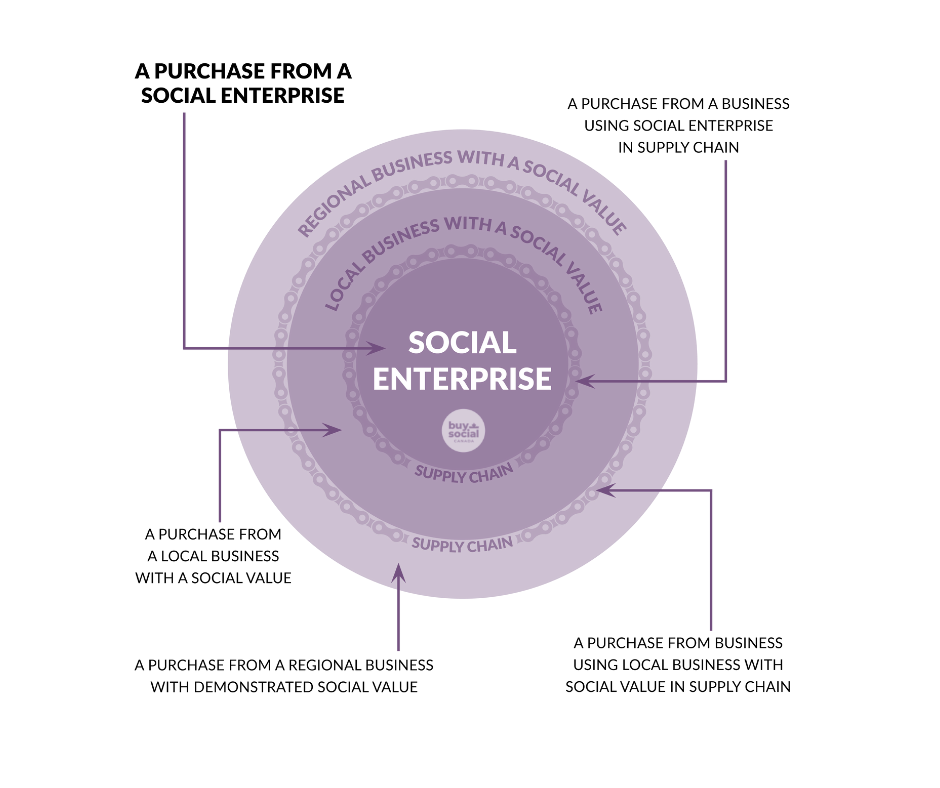Update
Busting Social Procurement Myths
Oct 23rd, 2023
Certified Social Enterprise: Washington Community Market
There are several common myths about social procurement that aren’t true. Here are the facts:
Myth: Trade agreements don’t allow for social procurement.
Fact: Trade agreements have parameters to work within, but they do allow social value considerations in procurement.
Additional Information:
- A procurement cannot limit who can bid.
- A procurement cannot restrict to local bidders but it can seek social value outcomes.
- There are exceptions for direct purchasing from non-profits.
- For more information, read the Buy Social Canada Trade Agreements Primer and local briefing note.
Myth: Social procurement costs more.
Fact: There isn’t evidence to support that claim.
Additional information:
- In some cases, social procurement can reduce costs, for example when contractors utilize local social value supply chains as opposed to bringing in outside resources.
- In other cases, there may be an additional cost when purchasing from local suppliers or social enterprises compared to multinational corporations. In these situations, it is important to consider the price difference, local economic value and the social value of your purchase.
- Cost does not always have to be the deciding factor when “best value” includes social, environmental, economic and cultural benefits to the community.
- “There were no known cost implications associated with the social procurement concepts that were included in the RFP.” – Scott Hainsworth, Comox Valley Regional District, Water Treatment Project, 2020
Myth: Social procurement means lower quality.
Fact: There is no evidence to support that claim.
Additional information:
- While you do add a social value weighting to the RFx process, the weighting factors and percentages are still determined based on the needs of the buyer for the goods or services, and quality/technical and price are still important considerations.
Myth: There aren’t enough social value suppliers.
Fact: Suppliers are available if you use the concentric circle model.
Additional Information:
- Purchasers can use a concentric circle model to take into consideration what you are purchasing and what vendors are available, thinking about location and supply chain.

Myth: The social procurement journey is straightforward and linear.
Fact: The social procurement journey is complex and iterative.
Additional Information:
- The journey will require changes in policy, practice and culture and can have incredible impact in communities – it’s worth it!
- Buy Social Canada is here to support and make this journey simpler, with training, resources, partnerships and consulting to support best practices. Contact us to take the next step.
Want to share these myths and facts with others? Download the PDF.

